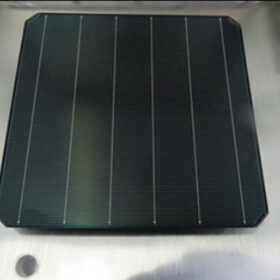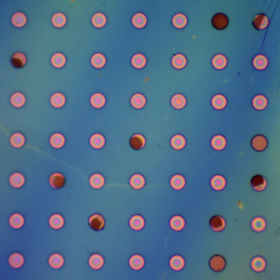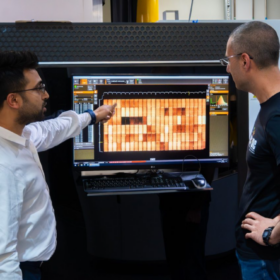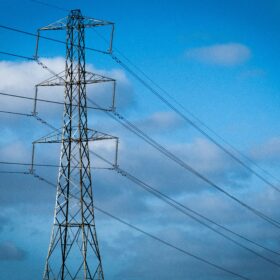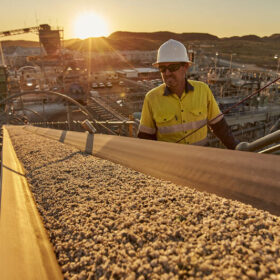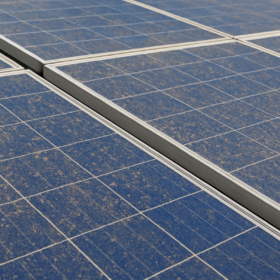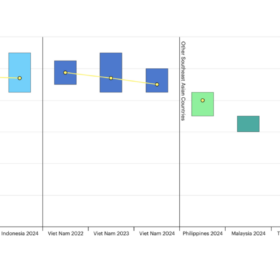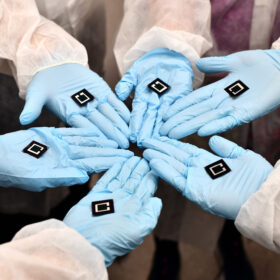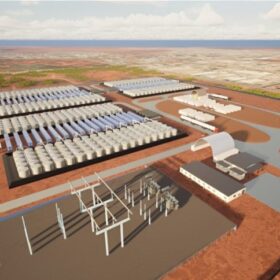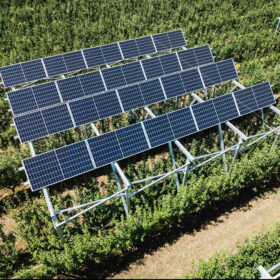Longi reveals details of world’s most efficient silicon solar cell
In a new scientific paper, the Chinese solar manufacturer explained that the 27.81%-efficient hybrid interdigitated back-contact cell it unveiled in April is based on passivated tunneling contacts and dielectric passivation layers, while also incorporating both n-type and p-type contacts.
Polymer film tipped to prevent solar panel corrosion
Engineers in the United States have developed a polymer coating they say could be used to protect PV modules, due to its impermeability to gases. The team has demonstrated that a 60-nanometer-thick film can extend the lifetime of a perovskite crystal by several weeks.
Outdoor testing identifies factors contributing to perovskite solar cell degradation
Tests conducted by a research team in outdoor environments in Spain and Poland have demonstrated a strong correlation between perovskite solar cell degradation and the combined effects of climatic and operating conditions. The scientists found that open-circuit operation accelerates degradation, whereas operation at the maximum power point and under short-circuit conditions has a lower impact.
Solar cell inspection tool evolution set to slash manufacturing costs by billions
Researchers at the University of New South Wales in Sydney are working with the institution’s spinout company BT Imaging to accelerate the commercialisation of solar cell defect detection technology, thanks to a $1.4 million commercialisation project.
Singapore, Australia regulators deepen energy cooperation
The Australian Energy Regulator (AER) agreed this week to enhance collaboration with Singapore’s energy market regulator on electricity and gas market regulation, as well as low-carbon technologies.
Accelerating innovation through collaboration: a sustainable future for Australia’s resources sector
Director of CSIRO Mineral Resources Dr Louise Fisher reveals how collaboration across research, industry and government is driving decarbonisation, digital transformation and the development of sustainable, globally competitive supply chains for critical minerals.
Australian solar pioneer wins top UK engineering prize
Pioneering solar researcher Martin Green has received arguably one of the world’s top awards for engineers and scientists in recognition of his achievements in photovoltaics and driving the global shift to renewables.
Researchers present inverter-based dust monitoring method for rooftop solar
Researchers in China have developed a dust monitoring technique that relies solely on the existing hardware resources of inverters, without requiring extra sensors or meteorological data. Tests on existing rooftop PV arrays demonstrated an accuracy exceeding 96%.
IEA says cost of capital for solar remains high in Southeast Asia
The International Energy Agency says the cost of capital for solar remains higher in Southeast Asian countries than it does in other emerging and developing economies.
Australian researchers achieve 27.06% efficiency with triple-junction perovskite solar cell
A team of researchers led by the University of Sydney has fabricated a triple-junction perovskite-perovskite-silicon tandem solar cell that achieved a power conversion efficiency of up to 27.06% and set new standards for thermal stability.
